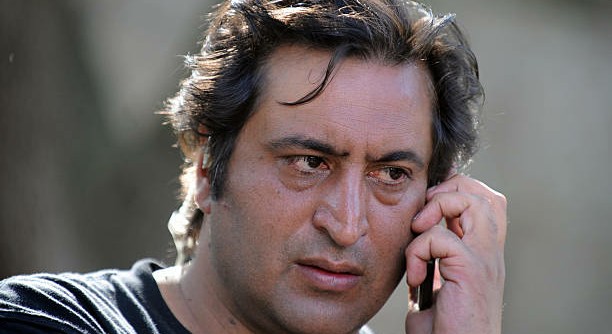‘Kashmiris are Indians but they don’t think like that’
New Delhi: Peoples Conference (PC) Chairman Sajad Lone here Thursday said though there was a talk about dialogue, it seemed that there was no desire for dialogue.
“We talk about dialogue but we don’t want dialogue,” he said at an event ‘Kashmir: The Way Forward’ organised by a Delhi-based think-tank the Observer Research Foundation in New Delhi.
“Once there are arrangements for a dialogue, then it should be decided to whom to talk but to say prior to a dialogue process to who you want to talk is not justified,” Lone said.
The PC Chairman said, “Kashmiris are Indians but they don’t think like that.”
About the chances of his party in the forthcoming legislative assembly elections in the State, Lone said he was fighting against “the Uncle” and “the Auntie”, making a reference toward the two former chief ministers of the State – National Conference Vice President Omar Abdullah and Peoples Democratic Party President Mehbooba Mufti.
“NC and PDP can do anything to remain in power,” he said.
Talking about his experience as a minister in the PDP-BJP coalition government in the State, the PC Chairman said, “There was no ideological conflict in the cabinet.”
However, he said he cannot forget the humiliation he faced as a minster when, despite his repeated requests, the funds he was asking for were not released.
Lone said during the 2016 uprising, the State cabinet was taking decisions unlike in the 2010 uprising when the Union Home Secretary was taking the decision of imposing the curfew or lifting curfew.
On his switch from separatist politics to mainstream politics, he said, “I think that there is no place for a separatist in the mainstream politics and what I am going through no one can understand.”
The PC Chairman said he was not a dynastic politician and did not even poach on any MLA from any other party and that they had come to him and requested him to form the government.
He also raised a question mark on the New Delhi’s role of conduction elections in the State saying that he had been witness to how elections during 1980s were rigged in Kashmir.
Senior journalist Barkha Dutt, who also spoke at the event, said looking at the present plight of “hyper-nationalist journalists”, she was ashamed of being a journalist.
“There is no centrist journalism in India on Kashmir,” Dutt said. “The news hour debate has damaged the situation in the Valley.”
She said people in Kashmir were losing the fear of death.
Former Vice Chancellor of the Islamic University of Science and Technology (IUST) Siddiq Wahid said the need of the hour was “free and fair politics” and not “free and fair elections”.
“Are we joking when we say Government of India doesn’t have a policy on Kashmir, and does it mean death and destruction,” he said.

